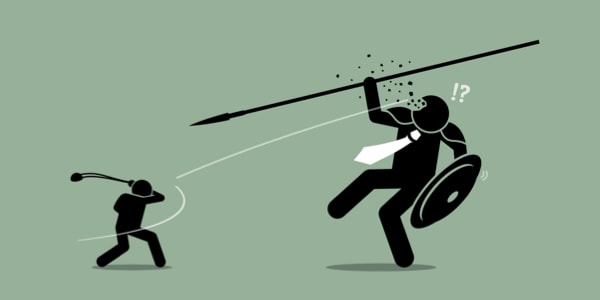Niche marketing is a powerful strategy for launching a new medical device or service in a crowded market. It’s also useful for taking down a bigger, better-heeled competitor. We’ve used this strategy successfully on everything from imaging equipment to OTC pharmaceuticals.
It works well because not many of your competitors are executing it in their own marketing. This makes them vulnerable.
Know the mind of your customer.
Do not skip research. You need real focus groups not moderated by stakeholders in the product. Let the doctors tell you what’s so great about the product. Find out what the difference is between physicians who love the product and merely like it.
That’s where you’ll find the niche you need to crack open the competition. Be open to the possibility that you don’t have a clue to the most exciting part of the product. We once discovered that the greatest feature on a neurosurgery microscope was a simple button that re-balanced the scope in a minute.
The heart of a great niche attack is a razor-sharp marketing strategy.
Here are three examples:
1. Buy our medical device because it’s the best.
Target: Everyone doctor on the planet.
2. Buy our medical device because it prevents cross-infection
Target: Doctors who care about cross-infection.
3. Prevent infection the same way doctors at the Mayo Clinic do.
Target: Doctors who view themselves as equals to the Mayo Clinic doctors.
Which one of these strategies carves the most lucrative market slice?
1. The classic “fear-of-leaving-someone-out strategy.”
2. Another “fear-of-leaving-someone-out-strategy,” because all doctors want to prevent infections, right?
3. Appeals to professional pride in owning the best, and it implies this is a premium product. Cutting to the chase: That’s the one we want to work with.
Why does niche marketing work?
First, can we agree on something? Your job is to take market share away other companies with similar products. If you’re not Goliath, don’t waste money on increasing the market size, because your larger competitors will lap it up.
With a strongly articulated niche marketing strategy, you can declare your ownership of a new piece of pie. Then the “bad guys” must decide how much they’ll spend to compete on your specialized battlefield.
A strong niche is not only good offense it’s smart defense. Once you own it, other companies will have to spend big to cut into your slice.
You’re thinking bigger and smaller, so you’re conserving cash. Channel budgets aren’t frittered away converting prospects who will never buy your product.
Niche strategies often produce stronger brands than the let’s round-up the patient approaches. They’re focused, they resonate with the target audience, and they produce creative that’s competitive.
And that’s why David always wins.







